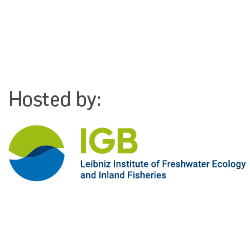PLENARY LECTURES
Name: Nancy B. Grimm
Affiliation: Arizona State University, Tempe, AZ, USA
Title of presentation: Resilience to climate change in streams and cities: looking to the past and the future
E-mail: nbgrimm@asu.edu
Nancy Grimm is an ecosystem ecologist who studies the interactions of climate change, human activities, resilience, and biogeochemical processes in urban and stream ecosystems. In the urban realm, she was founding director of the Central Arizona–Phoenix LTER and now co-directs the two transdisciplinary research networks UREx and NATURA. With collaborators and students, her research centers on nature-based, technological, and governance solutions that can build resilience to a future with increased frequency and magnitude of extreme events. In streams, she studies how hydrologic and climatic variability influence ecosystem processes such as stream metabolism and nutrient dynamics, and more recently, the impacts of a novel desert disturbance (wildfire) on stream processes through hydrologic connectivity of upland to stream-riparian corridor.

Name: Spencer R. Hall
Affiliation: Indiana University Bloomington, IN, USA
Title of presentation: Ecologists really should study parasites in freshwater ecosystems – an introduction to how and why
E-mail: sprhall@indiana.edu
Spencer Hall is a Professor of Biology at Indiana University Bloomington (USA). He is a community ecologist who studies host-parasite interactions in aquatic systems. In particular, he connects planktonic host-parasite interactions to aquatic food webs. With his students, he has explored how resources, predators, competitors, and various environmental factors that change along gradients influence the size of disease epidemics and their impacts on community structure in lakes. He and his collaborators create these “food-web modules” for aquatic disease using a combination of mathematical modeling, experiments conducted at a variety of scales, and surveys of epidemics in lakes.

Name: Tamlin Pavelsky
Affiliation: University of North Carolina, NC, USA
Title of presentation: From Secchi disks to satellites
E-mail: pavelsky@email.unc.edu
Tamlin Pavelsky is a professor of global hydrology at the University of North Carolina at Chapel Hill in the USA. He grew up outside Fairbanks, Alaska, in cabins without electricity or running water. Currently, Tamlin is the NASA hydrology lead on the Surface Water and Ocean Topography satellite mission, which will be launched this year. In 2012, he received a Presidential Early Career Award for Scientists and Engineers, the highest U.S. government award for early career researchers. His research interests are focused on the intersections between hydrology, remote sensing by satellites, and climate change. He works on scales ranging from the entire globe to a single large wetland, with a special interest in Arctic and subarctic regions.

Name: Amy D. Rosemond
Affiliation: University of Georgia, Athens, GA, USA
Title of presentation: Ecological surprises and insights from large-scale stream experiments
E-mail: rosemond@uga.edu
Amy Rosemond is professor in the Odum School of Ecology at the University of Georgia, located in the southeastern USA. She has worked to advance knowledge of the mechanisms by which global change affects stream ecosystems, from microorganisms to top consumers. Using whole-stream and multi-year experimental manipulations, she and her collaborators have found surprising energy flow pathways and food web effects from these large spatial and temporal scale experiments that were not predicted from simple models. By discerning underlying mechanisms and quantifying the effects of global change, this work has identified specific ways to safeguard and improve stream ecosystem health.

Name: Christiane Zarfl
Affiliation: Tübingen University, Germany
Title of presentation: Global anthropogenic pressures on river ecosystems
E-mail: christiane.zarfl@uni-tuebingen.de
Christiane Zarfl is a Professor of Environmental Systems Analysis at the University of Tübingen, Germany. She employs mathematical modelling in combination with observational and experimental data to understand processes and interactions in human-environmental systems with a focus on freshwater quality and availability, and on river ecosystem health in general. This includes research on the impacts of hydropower dams on whole river ecosystems, including at the global scale, and also on human populations to improve management decisions towards sustainable dam construction and operation. In addition, her research addresses biogeochemical processes that determine the environmental fate and effects of contaminants, especially in rivers.


